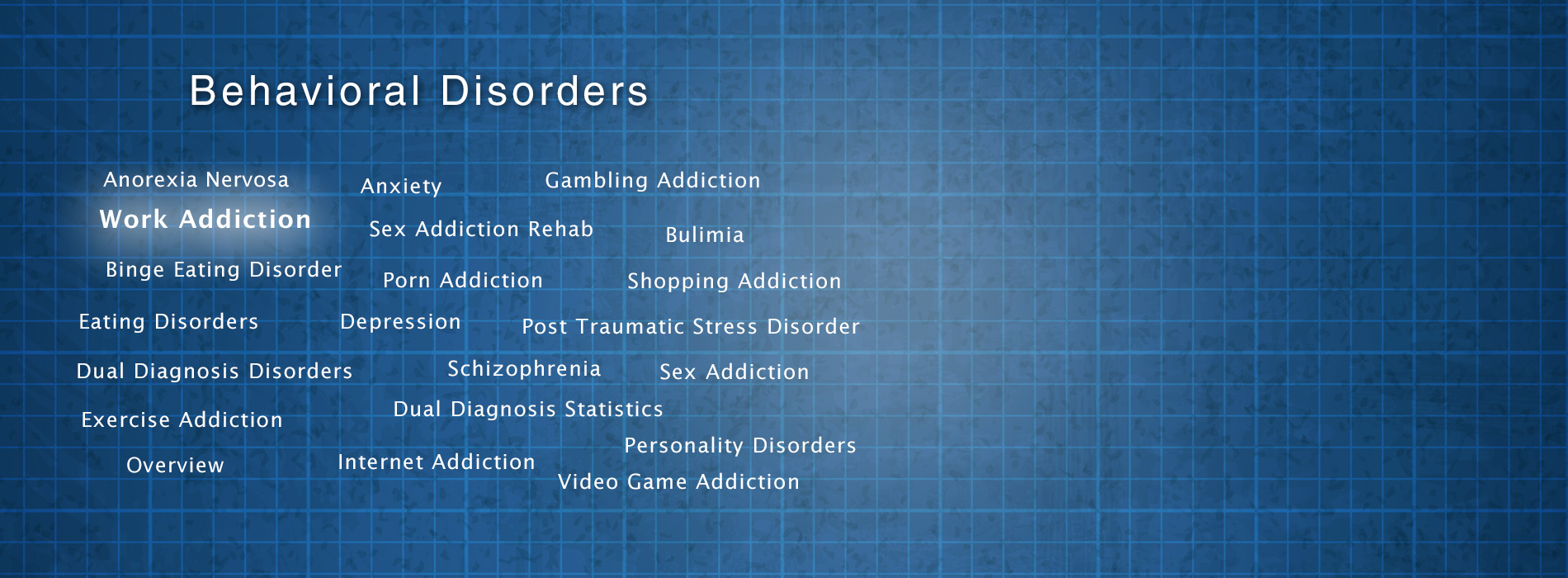Work Addiction
We all have to work, but when work becomes a compulsive activity that a person feels they have to do in lieu of relationships or leisure, it may be an addiction.Work addicts often feel stressed or guilty when they are not working and may put work ahead of time spent with friends and family or their hobbies. They often spend extra time working and are the last person to leave the office, even when extra hours aren’t needed. Work addicts are often irritable when communicating with others who don’t meet their standards of perfection. They also impose these standards of perfection on themselves, often with unrealistic workloads or deadlines, and get upset at their own mistakes. Some people who are addicted to work feel like they have to be in control of any work situation and may feel anxious or upset when they are not in control. Others use work as an escape from their personal problems.
Some work addicts even neglect their health due to work by worrying, not getting enough sleep, or eating poorly. Physical symptoms of these actions can manifest as stomach ulcers, chronic heartburn, heart problems, high blood pressure, and sleep disorders. Carpel tunnel or other physical injuries can develop due to a high work load as well. Work addiction can also lead to psychological disorders, such as depression or anxiety, possibly leading to suicide.
Work addiction rates are rising all over the world as companies put more pressure on their employees to “go the extra mile” and promote the belief that hard work will inevitably result in success. Surveys have shown that the average work week in the US is 54 hours and only 14% of people work 40 hours or less. Only 30% of Americans take vacation time in a given year. The UK, Japan, and China have their own problems with overworking as well. Japan, in particular, has experienced an increase in suicide rates and decrease in dating and marriages because people work too many hours.
The increase in work hours has also resulted in a decrease in work effectiveness because of the physical effects mentioned above. Some work addicts take on too much work and multi-task by juggling several projects at once, causing all of their work to suffer. Work addicts who focus on perfection neglect other duties while trying to perfect their current task.
Treatment for work addiction strives to create a healthy work-life balance. Setting time limits on work can help establish a boundary between work and home life. Do not answer phone calls or e-mail outside of work hours. Learn that it is okay to say no to requests for overtime or additional responsibilities. Create friendships with people who are not co-workers or make a pact with co-workers for no “shop talk” outside of work. Schedule vacation time each year to give you time to reset and spend time with friends or family. The belief that working hard and staying at work for long hours will result in success has been proven to be false, so do not sacrifice your personal life for your work.

